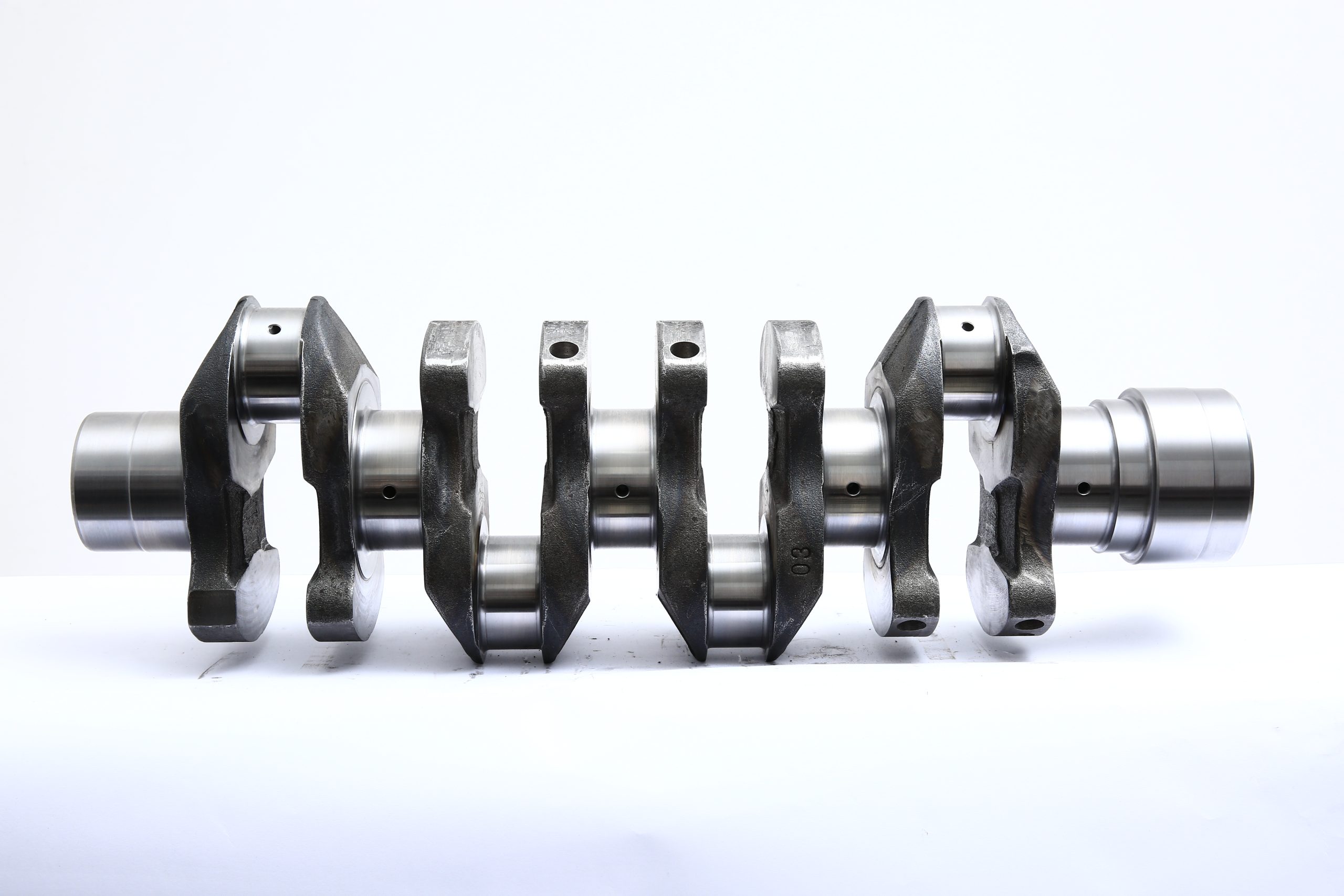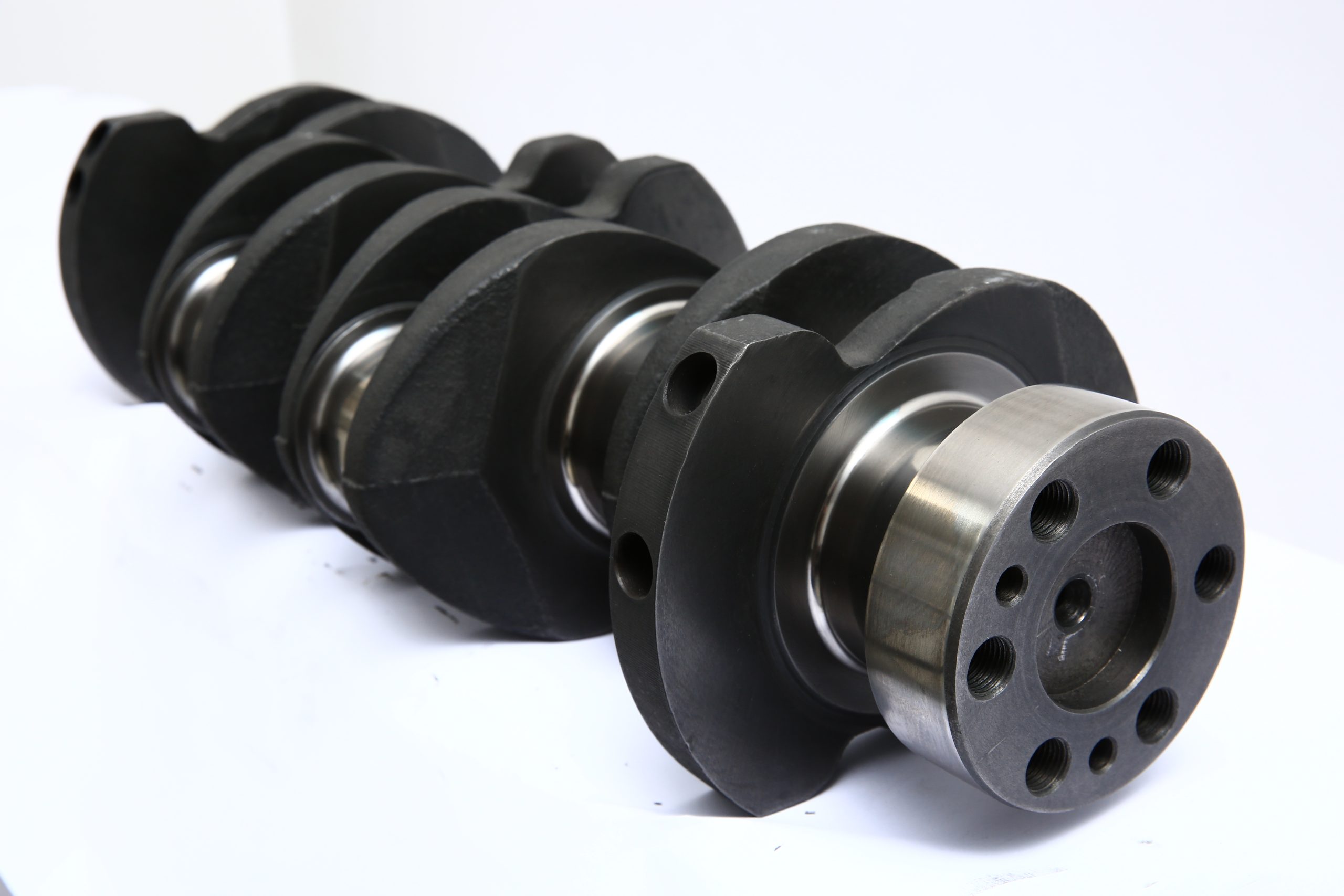The crankshaft is an essential component of any gasoline engine, responsible for converting the linear motion of pistons into rotational motion. In the realm of cars and motorcycles, gasoline engines depend on the reliability and efficiency of their crankshafts to deliver top-notch performance and smooth operation.
A high-quality crankshaft must exhibit exceptional strength and precision to withstand the immense forces and stresses generated within the engine. Manufacturers employ advanced materials and manufacturing techniques to produce crankshafts that are not only strong and durable but also lightweight to minimize rotational inertia, enhancing engine responsiveness.
Gasoline engines in sports cars often require high-performance crankshafts capable of withstanding the rigors of racing and spirited driving. In these applications, manufacturers may opt for forged or billet crankshafts, renowned for their superior strength and fatigue resistance compared to their cast counterparts.
Motorcycles, on the other hand, demand compact and lightweight crankshaft designs that maintain balance and minimize vibrations. In this context, manufacturers may utilize computer-aided design (CAD) and computer-aided engineering (CAE) tools to optimize crankshaft geometry, ensuring smooth engine operation and reduced vibration levels.

Moreover, crankshaft balancing plays a critical role in preventing engine damage and maintaining smooth operation. Proper balancing eliminates excessive vibrations and prolongs the lifespan of the engine components. This process is particularly important for high-performance gasoline engines found in sports cars and performance motorcycles, where high revs put additional strain on the crankshaft and other components.
In conclusion, the crankshaft’s role in gasoline engines for cars and motorcycles cannot be overstated. Its ability to efficiently convert linear motion into rotational motion is the foundation of engine performance. With advances in materials and manufacturing techniques, we can expect crankshafts to continue evolving and enhancing the capabilities of gasoline engines in the automotive and motorcycle sectors.
When it comes to gasoline engines in cars and motorcycles, the crankshaft serves as the backbone of performance, efficiency, and reliability. FEDA offers top-of-the-line crankshafts, engineered to meet the unique demands of gasoline engines with cutting-edge designs and unmatched quality.
FEDA’s Billet Crankshaft Full Machining Crankshaft stands out for its precision and strength, crafted from a solid piece of metal through advanced machining processes. This design ensures exceptional durability and resistance to fatigue, making it a popular choice for high-performance engines in sports cars and performance motorcycles.

In addition to the billet crankshafts, FEDA also offers Forged Crankshafts, known for their superior strength and toughness. Forged crankshafts are manufactured using a process that involves heating and compressing a metal billet to create a robust, high-density structure. This manufacturing technique results in a crankshaft that can handle the intense stresses and high RPMs associated with high-performance gasoline engines.
One of FEDA’s key advantages is its commitment to quality and precision. By utilizing state-of-the-art technologies such as computer-aided design (CAD) and computer-aided engineering (CAE) tools, FEDA ensures optimal crankshaft geometry and balance, reducing vibrations and prolonging engine component life.
FEDA’s crankshafts are designed to optimize engine performance across a wide range of applications, from daily drivers to high-performance sports cars and motorcycles. With a focus on superior materials, advanced manufacturing techniques, and precise balancing, FEDA crankshafts deliver unparalleled performance and durability, making them a top choice for gasoline engine enthusiasts.
In a market that demands excellence, FEDA continues to raise the bar with its innovative crankshaft designs, cementing its position as a leading provider of high-performance crankshafts for gasoline engines in cars and motorcycles. Choose FEDA, and experience the power and performance that only a top-quality crankshaft can deliver.

As an automotive enthusiast, I have always been passionate about improving my car’s performance. When I decided to upgrade my gasoline engine, I knew that choosing the right crankshaft would be crucial. I opted for a FEDA Forged Crankshaft, and the results have been nothing short of amazing.
The installation process was seamless, thanks to FEDA’s precision engineering and attention to detail. It was evident from the start that the crankshaft was crafted with care and designed to optimize my engine’s performance.
Since installing the FEDA crankshaft, I have noticed a significant improvement in my engine’s responsiveness and overall performance. The engine revs more smoothly and effortlessly, making every drive an exhilarating experience. Moreover, I have observed a reduction in vibrations, which has not only improved my driving comfort but also enhanced the longevity of my engine components.
One aspect that has truly impressed me about FEDA’s crankshaft is its durability. Despite the high RPMs and stresses associated with performance driving, the crankshaft has remained rock-solid and reliable, a testament to FEDA’s commitment to using superior materials and manufacturing techniques.
Even my fuel efficiency has improved since upgrading to the FEDA crankshaft. The enhanced performance and reduced vibrations have contributed to more efficient fuel combustion, resulting in noticeable fuel savings over time.

In conclusion, my experience with the FEDA Forged Crankshaft has been nothing short of exceptional. The enhanced performance, reduced vibrations, and improved fuel efficiency have transformed my driving experience, making my gasoline engine feel more powerful and enjoyable than ever. I would highly recommend FEDA crankshafts to any automotive or motorcycle enthusiast looking to unleash their engine’s true potential.
When selecting an industrial manufacturer for purchasing a crankshaft, it is crucial to consider factors such as the manufacturer’s reputation, the quality of materials used, and their manufacturing techniques. Prioritize manufacturers with a proven track record in the industry, offering high-quality crankshafts specifically designed for gasoline engines in cars and motorcycles. It’s also essential to evaluate their customer support and after-sales services, ensuring a seamless experience throughout the purchasing process and beyond.
As the automotive and motorcycle industries continue to evolve, the demand for more efficient and high-performance gasoline engines is on the rise. This progress fuels the development of advanced crankshaft technologies, aimed at improving engine performance, durability, and efficiency.
Lightweight materials are expected to play a significant role in the future of crankshaft development. Manufacturers will likely explore the use of advanced materials such as high-strength steel alloys, titanium, and even carbon fiber composites to produce lighter and stronger crankshafts. These lightweight designs will help reduce rotational inertia, resulting in quicker engine response and improved fuel efficiency.

Computer simulation and optimization will become increasingly vital in the design process. By leveraging sophisticated CAD and CAE tools, manufacturers can create highly optimized crankshaft geometries tailored to specific engine requirements. This level of customization will lead to reduced vibrations, better engine balance, and improved performance across a variety of applications.
Additive manufacturing, or 3D printing, is another technology that holds significant potential for the future of crankshaft production. As 3D printing techniques advance, we may see manufacturers using this technology to create highly intricate and lightweight crankshaft designs, previously impossible to achieve through traditional manufacturing methods.
Environmental considerations will also play a role in the development of future crankshaft technologies. As the global automotive industry moves towards a more sustainable future, manufacturers will need to develop crankshafts that not only enhance engine performance but also contribute to reduced emissions and improved fuel efficiency.
In conclusion, the future of crankshafts in gasoline engines for cars and motorcycles is ripe with innovation and potential. Through the adoption of advanced materials, cutting-edge design tools, and innovative manufacturing techniques, we can expect to see crankshafts that continue to push the boundaries of engine performance, efficiency, and sustainability.